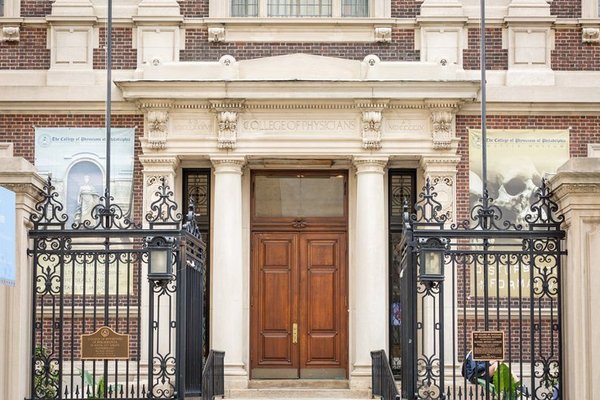The Mütter Museum has parted ways with its executive director, Kate Quinn, who spearheaded a contentious ethical review of the museum's policies for displaying human remains from its vast collection of medical specimens.
The College of Physicians of Philadelphia, which owns and operates the Center City museum, confirmed Quinn's last day was Monday but declined to comment on the circumstances of her departure. Quinn had been with the museum since September 2022 and was overseeing its Postmortem initiative, which sought public feedback on charting a new course for the Mütter's future.
MORE: Camden County woman allegedly sought hitman on Tinder to kill Philly police officer, his daughter
"We appreciate her dedicated service to the College during a difficult period and wish her the best in her future endeavors," the College said in a statement.
The museum did not name an interim executive director or share plans about its search for Quinn's replacement.
Quinn's departure comes amid a broader leadership transition at the College, which appointed former thoracic surgeon and Temple University Health System executive Larry Kaiser as its CEO in January. Kaiser replaced former CEO Mira Irons, who resigned in September 2023 as controversy swelled around the 162-year-old museum's changing mission.
Irons and Quinn challenged the Mütter's longstanding policies and traditions, casting doubt on the methods the museum's founders used to obtain many of its 6,500 biological specimens. Quinn claimed the museum needed to reckon with its historical wrongs, including displaying remains from people who never consented to donating their bodies to science.
The ethics of showcasing human remains has become more prominent in debates about the practices of museums worldwide, including at the Penn Museum, where Quinn was director of exhibitions and special programs before moving to the Mütter Museum.
Quinn drew backlash from Mütter Museum members and advocates when she scrubbed online galleries of photos displaying human remains. Eight months later, the museum relaunched an online collections database that didn't include any photos of human remains. Quinn also altered or canceled many of the museum's most popular events in recent years.
Critics argued Quinn was attempting to sanitize the Mütter by turning a unique shrine of medical history into a contemporary museum cut off from the lessons of its complicated past. Some expressed that the museum's human remains — despite their shock value — are vital to highlighting neglected medical conditions and providing ways for people to learn about the painful legacies of medical discovery.
Both Quinn and Irons had faced calls for their resignations, and the Mütter drew international press for the turmoil over its identity. Protect the Mütter, an anonymous group of advocates opposed to Quinn, also said Quinn's tenure led to an exodus of staff in recent years.
The Postmortem initiative included a series of town hall events and focus groups last year to collect public insights about the museum's exhibits and how people want to see the Mütter adapt to changing ethical norms. The Postmortem website now says the initiative is "evolving and ongoing through 2025," but does not list any upcoming events. The College declined to comment about what comes next for the Mütter's ethical review.
When Kaiser was appointed in January, he said he was optimistic about the museum's future.
"I think that the college and the museum are positioned for great days ahead, and I am delighted for the chance to lead this important work," Kaiser said.

